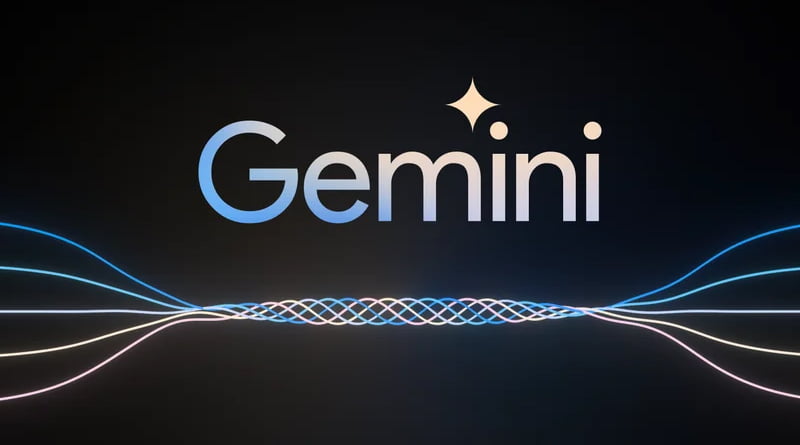Google Gemini represents a groundbreaking project in the ever-evolving landscape of search technology. Google remains at the forefront, constantly innovating to enhance user experience and provide more accurate and relevant search results.
For the past 27 years, Google has established itself as a dominant force in the tech industry. With a suite of widely-used consumer products like YouTube, Google Docs, and Gmail, as well as handling 8.6 billion daily searches, Google’s influence is unparalleled. However, recent years have seen Google facing significant challenges from OpenAI, a smaller but highly innovative company making waves with its advanced AI technology.
OpenAI released ChatGPT on November 30, 2022, which quickly became synonymous with conversational AI. The release of ChatGPT marked a pivotal moment, pushing Google to ramp up its AI innovations, culminating in the launch of its own AI projects like Gemini.
Gemini Live: Google’s Conversational AI
One of Google’s major AI advancements is Gemini Live. This conversational AI aims to create a more natural interaction experience by eliminating the need to hold down a microphone button, unlike traditional virtual assistants like Siri or Google Assistant. Gemini Live can engage in conversations with emotional tone and fluidity, similar to OpenAI’s latest ChatGPT-4.

Multimodal AI with Project Astra
Another significant development from Google is Project Astra, a multimodal AI that integrates multiple input types to generate more comprehensive outputs. By combining inputs like voice and camera, Astra can solve complex problems. For example, if you point your camera at a math problem and ask for help, Astra can interpret both the visual and verbal data to provide a solution.
This kind of AI promises to transform education by lowering the barriers to learning, making information more accessible and personalized.
Google’s Edge in Token Processing
One of Google’s competitive advantages lies in its ability to process a vast number of tokens. Tokens are units of information inputted into the AI system. Gemini’s capacity to handle up to 2 million tokens, double its previous limit, means it can process and analyze large datasets more effectively. This is particularly beneficial for tasks like studying for exams, where you can input all your lecture slides and ask the AI to create a comprehensive study guide.
Despite these impressive capabilities, the real-world application and effectiveness of these innovations remain to be fully tested. As both Google and OpenAI push the boundaries of AI technology, the competition intensifies, promising exciting advancements for consumers.
The Promise of Multimodal AI
Google’s Project Astra represents a significant leap in AI technology. Multimodal AI, which uses different types of inputs to generate outputs, is poised to revolutionize how we interact with technology. For instance, Astra can use your camera to visually interpret a problem and your voice to understand the context, providing a comprehensive solution.
This technology could fundamentally change education and professional workflows. Imagine being able to scan documents and ask your AI to summarize key points or solve complex equations by simply pointing your camera at them.

Gemini’s Role in Google’s Ecosystem
One of Google’s strategic advantages is its vast ecosystem of products. Gemini’s integration into services like Google Search, Gmail, and Google Photos positions it uniquely against OpenAI’s offerings. For example, Gemini can enhance Google Search by providing detailed summaries of search results, eliminating the need to click through multiple links. This makes information retrieval faster and more efficient.
In Gmail, Gemini can triage emails, prioritize important messages, and even draft responses. This integration can significantly boost productivity by automating routine tasks, giving users more time to focus on critical activities.
The AI Assistant of the Future
Google is also working on a Gemini-powered virtual teammate for professional environments. This AI assistant can handle specific tasks, manage schedules, and even collaborate on projects. The ability to add an AI assistant to your team could transform workplace dynamics, making it easier to manage workloads and streamline operations.
OpenAI’s Competitive Edge
While Google has the advantage of an integrated ecosystem, OpenAI’s partnership with Microsoft brings its AI technology to a broad range of professional tools, such as Microsoft Office. This partnership allows OpenAI to seamlessly integrate its AI capabilities into widely used software, potentially giving it an edge in the enterprise market.
The Battle for AI Supremacy
Google and OpenAI are both pushing the envelope in AI technology. Google’s strength lies in its extensive product ecosystem and the ability to integrate AI into everyday tools seamlessly. On the other hand, OpenAI’s focused approach and partnerships provide robust AI solutions tailored for specific use cases.
The ultimate winner in this AI race will be determined by who can deliver the most intuitive, effective, and widely adopted solutions. For consumers and businesses alike, this competition promises to bring rapid advancements and more powerful AI tools.
As these tech giants continue to innovate, the future of AI looks incredibly promising, offering exciting possibilities for enhancing our daily lives and work environments.
Conclusion: The Future of AI
The competition between Google and OpenAI promises rapid advancements in AI technology. Google’s strength lies in its ability to integrate AI across its extensive range of products, while OpenAI’s focused approach and strategic partnerships bring robust AI solutions to professional environments.
As these tech giants continue to innovate, users can look forward to increasingly sophisticated and intuitive AI tools, transforming both personal and professional landscapes. For the latest updates on AI advancements and how they can benefit you, stay tuned to our future articles.